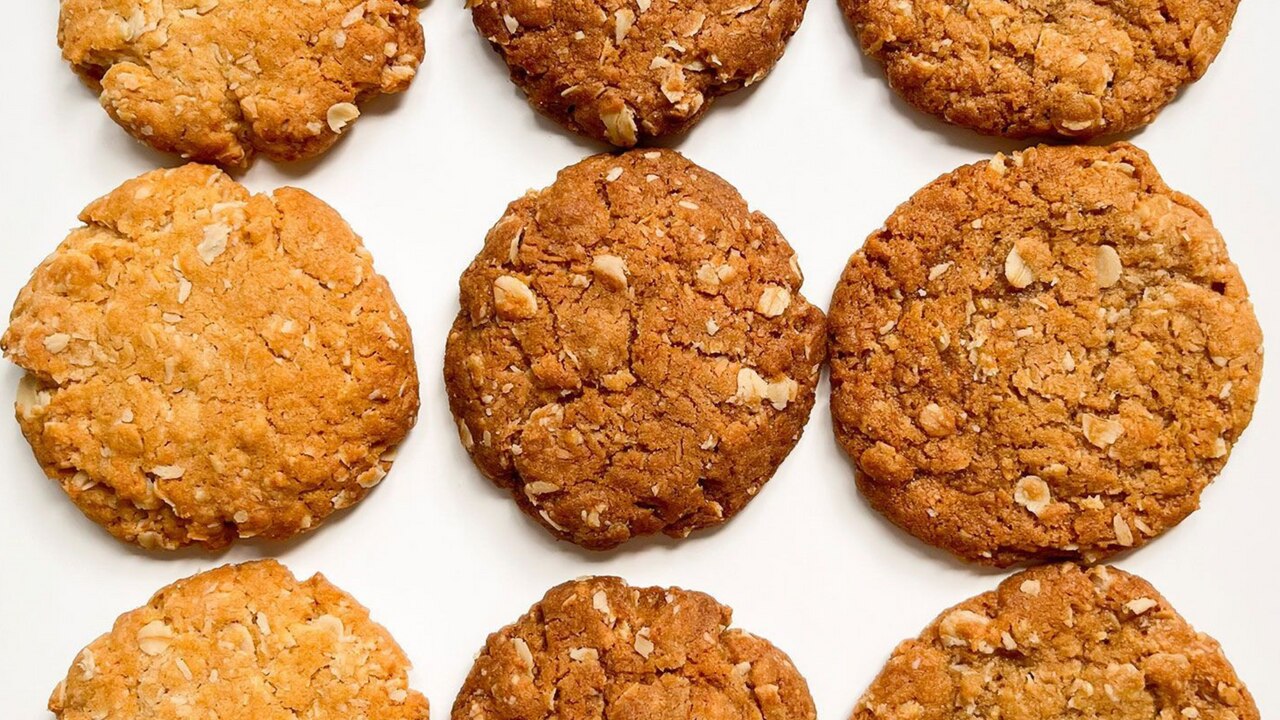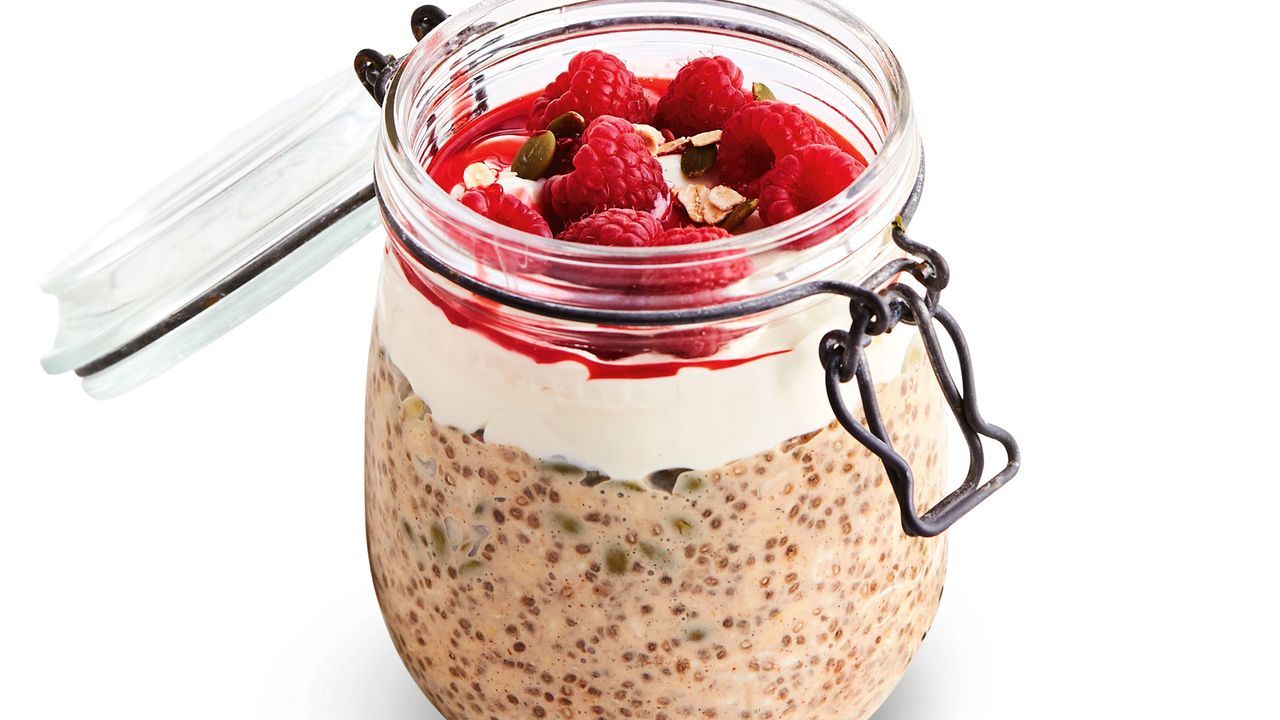Australians reveal their secret scone tips and techniques
Taste has uncovered some really smart hacks when it comes to baking the perfect scones — from what ingredients to add to some clever baking techniques.
Scones. They may be one of the nation’s all-time favourite baked items, but for a barely-thrown-together handful of pantry staples they sure can cause a lot of controversy.
Should the butter be cold or warm? Should you add an egg? What about cream? Is it considered cheating to use lemonade? And all that’s before we’ve even begun to think about the jam-first or cream-first dilemma.
Taste tackles the great scone debate here … if you’re game enough to weigh in on it.
In a bid to get more insight into what truly makes a great scone, taste.com.au threw the question out to the Facebookverse to see what came back, and we weren’t disappointed.
Taste also raided its recipe review archives to unearth some gems of baking wisdom you probably haven’t come across before.
Did we reach consensus on the formula for the perfect scone? Not quite. But we did uncover some really smart hacks to take into your next scone baking session. Here are some of our favourite finds.
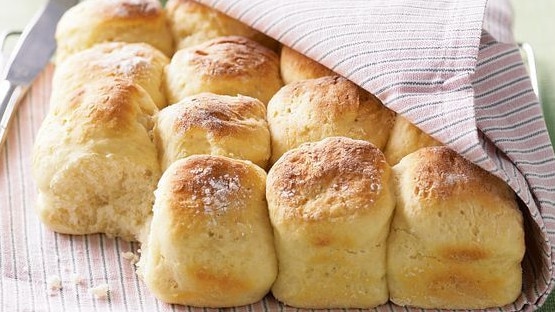
Best ingredients to add to scones: your suggestions
“Lemon juice in the milk.” – Carol
“Replace butter with cream … no rubbing required. Turns out perfectly every time.” – BM
“I made scones with half cream and half tonic water, turned out better than I thought.” – Doris
“Ginger beer puts a slight stance on what is a normal scone. Next raspberries and white choc bits. Raspberry jam and lashings of cream.” – Mitch
“Dates soaked in strong tea. Maybe a dash of yoghurt to make up liquid volume.” – Heather
“I have made this scone recipe many times. I always add baking soda and vinegar to add to the fluffy light feel.” – Gourmet bellybutton
“I use powdered milk, which works well when making them with soda water.” – Beck
“Sour cream keeps them soft and still good for the next day … if you have any left.” – Margaret
“3 cups of flour and one cup of icing sugar.” – Steve
“Leave the milk out to till it starts to go off, very light touch when mixing and a gentle roll hot oven then boom.” – Paula
“3 ingredient scones!! Lemonade, cream and flour – cannot flaw this method!” – Jess
Check out our best fluffy 3-ingredient scone recipe
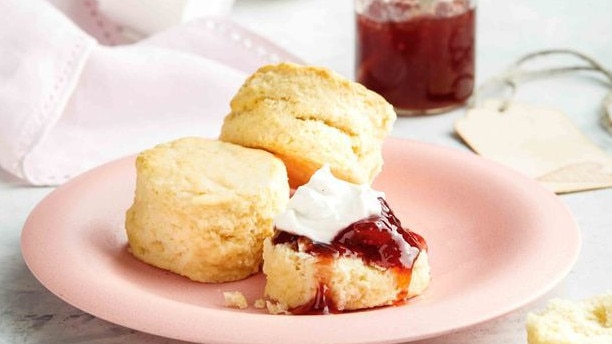
Best scone technique tips
“Once saw someone make them in three minutes from start to going in the hot oven, and they were amazing. Said needed a light hand and too much handling made the dough tough.” – Beryl
“Your butter should always be cold when making scones. Best tip my grandmother ever gave me.” – Terri
“Treat very gently when cutting and placing them very close together on the tray for cooking.” – Jane
“1. Preheat oven 2. Sift flour 3. Lemonade and cream. 4. Knead slightly. 5. Don’t twist cutter. 6. Place scones close together so they rise!” – Josephine
“Put your tray in the oven with a dusting of flour to heat whilst you make the scones.” – Rayleen
“I always use a metal knife to mix. I think it’s because it prevents it from getting over-mixed.” – Julie
“Cream instead of butter … even if the cream is past its use-by date …. always mix with a knife … cold hands … handle as little as possible…place them just touching on the tray … brush with milk… and really hot oven.” – Kyles
“I’ve used your basic scone recipe for decades. Always get compliments. People don’t believe that such a simple recipe is so perfect.” – Sue
“Cooking them in an air fryer.” – Rachel
Should you cook your scones in an air fryer?
Absolutely! A hot air fryer is perfect for cooking fluffy scones. The taste.com.au food team tested the best techniques to come up with the ultimate air fryer scones recipe you have to try.
What’s the secret to making good scones?
While everyone has their own trusted formula for making scones just how they like them, we wanted to give the last word to taste.com.au digital food director Amira Georgy. Here are her tips:
Should you add sugar to scone dough?
If you’re making traditional scones then you’re most likely going to serve them with jam which means you won’t need to add sugar.
However, if you like your scones on the sweeter side, you can add 1-2 tbs of caster sugar once you’ve rubbed the butter into the flour.
Adding sugar will make your scones brown quicker, so make sure you keep an eye on them in the oven.
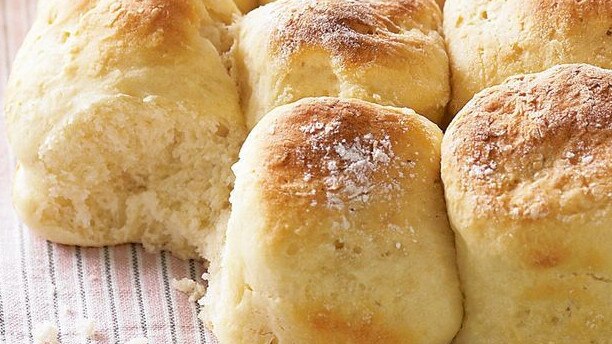
Should you add baking powder to scones?
If you’re using self-raising flour in your recipe, then you generally won’t need to add any baking powder as the self-raising flour already contains baking powder.
However, if you are using plain flour, you will need to add baking powder in order to help the scones rise.
Should you ever add egg?
Egg helps bind the ingredients, so it’s not uncommon to add egg to a scone recipe. But it’s definitely not essential (and most of our scone recipes are egg-less).
What’s your ultimate scone tip for the perfect rise?
Always use well-chilled butter. Also, make sure you use the correct amount of baking powder or bicarbonate of soda in the recipe.
These leavening agents release carbon dioxide which escapes in the form of bubbles when heat is added – these help the scones rise properly and give them a light and fluffy texture.
Plus, I find that using a round pastry cutter to cut the scones from the dough, rather than shaping them into balls, is best as it means you’re handling the dough less.
I try to push the cutter down in one swift movement instead of twisting and turning the cutter as you push it down.
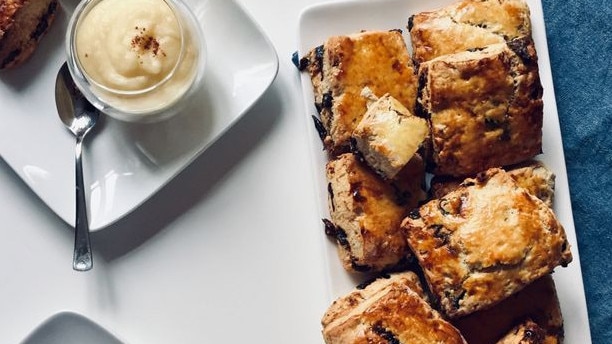
Some bakers suggest lemon, vinegar and even ‘on the turn’ milk for perfect scones. Would you recommend any of these?
Lemon, vinegar and ‘on the turn’ or ‘sour’ milk all have acidity in them which means they can effectively react with bicarbonate of soda and help scone dough rise.
You only need to use these acidic additions if you’re using bicarbonate of soda as your leavening agent, however if you’re using baking powder, then the acid will not react to it.
What’s your top tip for mixing scones?
The less you handle the scone dough, the better your scones will be. So when mixing in any other ingredients, always use a butter knife to combine them (leaving a few lumps is okay).
When kneading the dough, be very brief, knead just until the dough comes together.
Top 5 scone recipes to try:
For more recipe ideas, go to taste.com.au or check out the Taste Test Kitchen now.
Originally published as Australians reveal their secret scone tips and techniques

